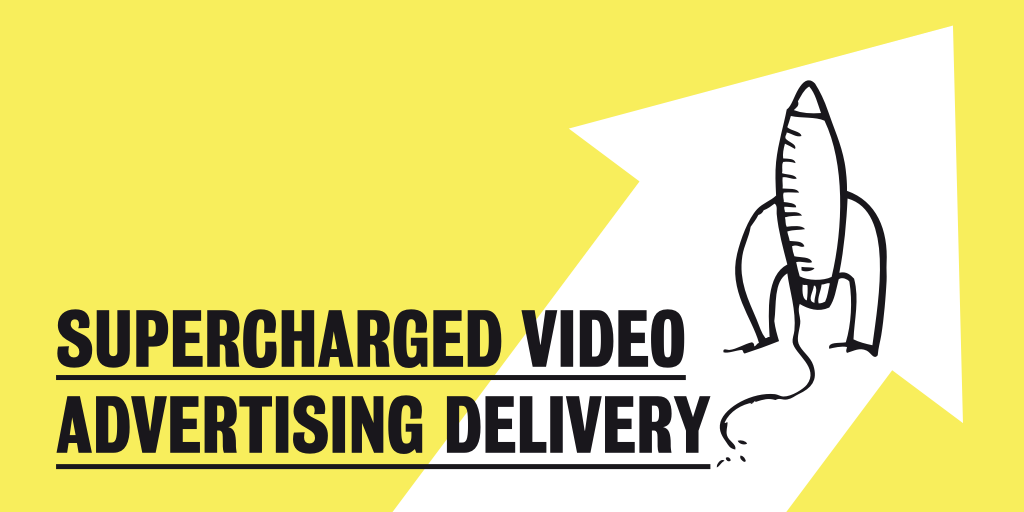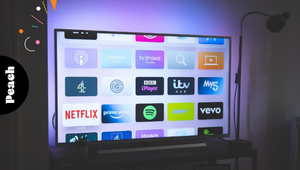
An Inevitable Future: Michael Bungey on the Journey to Programmatic TV

From setting up his first agency
back in the 1970s, through his days in the Saatchi empire, to being CEO of
Cordiant and running the Bates network worldwide, Michael Bungey is one of the
most experienced Mad Men in the business.
Since the early 2000s he has turned his attention to a more niche part of the industry – advertising delivery. Here, he explains why he entered the field, how he became Chairman of the world’s first truly cloud-based delivery system, and why Honeycomb is the leading platform to meet the inevitable programmatic future of TV.
LBB> When you were
running an agency, what was your understanding of the advertising delivery
world?
MB> To be honest I experienced very little of the
delivery side. Running an agency meant I was pretty far removed from it. There
was certainly no one coming and suggesting alternatives or saying, ‘Wouldn’t it
be good to do something different and a bit more modern?’.
As far as I was concerned, the ads were being delivered on time and everything was fine. That was before I talked with James [Carpenter – founder of Adstream and Honeycomb] who’d invented this thing in Australia. We were on a transatlantic conference call and we were talking about something completely different with a group of people. Right at the end, he started talking about something he had at that time called Digidubs, but later became Adstream. I said that I’d like to talk further about it and invited him to London. After some discussion, I realised it was something that could revolutionise the industry and I advised him to talk to our agencies about it.
LBB> What was
Digidubs?
MB> Digidubs was two things; a delivery service for ads that replaced physical tapes with digital files, and an ordering system that you could access and manage online. The fact that you could deliver your ads to a TV station and that you could see it happening live, in a matter of minutes, was truly pioneering.
LBB> Was James
central to that digital revolution?
MB> Totally. He and Richard Carter, it was their idea. Adstream grew out of that relationship. It was revolutionary in the same way that Honeycomb is now revolutionary.
LBB> How you
become Chairman of Adstream?
MB> I first started talking to James about it in 2000, and then when I retired from agency life in 2002 we reconnected. That’s when I joined as Chairman of Adstream in the UK. I could see that using technology was going to revolutionise delivery but James created the interest for me – it wasn’t something that was on my mind. From there on, it was a question of trying to combat the inertia that existed within the business.
LBB> What affect
did this have on agencies?
MB> They were interested but very slow to get involved. We went to see all the agencies in London because I knew them all and everyone got very excited about it, but then they handed it off to the people who were running their production departments and so on. In those days people were spending quite a lot of money on delivery because it had traditionally been handled manually. Digital delivery could offer big savings, not only in terms of money, but also staff and time. We did eventually catch people’s attention but there was an innate suspicion back in 2003 of whether it would all work. It was understandable; this was a giant business in TV production and commercials. If you get it wrong, you don’t get a second chance because the spot’s gone. If you’ve booked a spot for 5pm and you haven’t got the commercial there – which was, in those days, three days earlier – you’ve missed the spot.
LBB> If Adstream
did such a good job of revolutionising the industry, why is there the need for
a new iteration?
MB> Honeycomb is more than a new iteration. James and
Richard took the process back to a blank piece of paper and designed a system
that is wholly more efficient. Living in the Cloud, agile and nimble, it
removes error and waste. But best of all it works to better understand the data
it handles and is designed to work with the future needs of programmatic TV.
The Honeycomb system essentially replaces 2003 technology with a 2016 version. It happens in industries all the time, not just in advertising, and it’s not an unexpected move forward. The internet and the Cloud are part of everyday life in so many businesses now. Perhaps the industry was not desperate for Honeycomb to come along. But when you think about how TV is going to be revolutionised over the next three to five years, with the development of programmatic buying, then it really is inevitable.
LBB> How
inevitable is programmatic TV?
MB> It’s happening. The technology is already on a path
that will revolutionise not only commercials, but the whole way they’re planned
and bought for the future. We’re heading towards an age where almost every
individual can be targeted individually. The current ways that audiences are
broken down is completely old fashioned. Ultimately there’ll be endless
variations on the same commercial and you’ll be able to bring it all down to street
level – at least in terms of residential postcodes. Then it’ll be down to
creating the data that’ll provide customer information, to make it even more
closely targeted. This is all beginning to happen and that’s what we want to be
part of.
In terms of the product we have, the goal was never to just create a new delivery system. We set out to meet the future of programmatic TV. Looking at the most efficient way of getting there, we realised how vital it was to build an entirely new delivery tool to make that journey possible. Collecting rich data along the way is, without doubt, part of the tech stack that’ll be increasingly relevant to the future development of programmatic.
LBB> Why is
Honeycomb ahead of the curve when it comes to programmatic?
MB> I think we got into it at the right time.
Programmatic demands a lot of input from a lot of different kinds of companies.
You’ve got to find the data, analyse it, and make it commercially viable, and the
agency media departments know that the game is going to change in the future.
Programmatic is basically a smart word for automatic and we believe that the buying process is going to become more automated. When you’re trying to have the whole thing run like one giant daily auction, it can only be done using certain tools, you can’t do it until the right tools are developed. We’re looking to make Honeycomb the programmatic platform where this can take place – we’re not looking to own everything that goes on in the programmatic world, far from it, but we want to be important players. The system that we’ve delivered does capture a lot of data. Ultimately, the biggest recipient of data is going to be the broadcaster.

LBB> Will
everything be programmatic in the future?
MC> It’s never everything. There’s always some room for other things but certainly the majority of business will be. The linear TV market is about 200 billion US dollars. Everyone thinks that everything must already be on video-on-demand. It’s a big market but it’s still about 11 billion vs. 200 billion and that’s where the future change will happen.
LBB> How far do
you think the future of Honeycomb can go?
MB> If we get it right, and it’s about getting the right partners and people – there’s a lot of things to do. I believe Honeycomb can become an important player and leader in the market. Not just in the UK and Europe, but truly global – so there is a lot of interesting stuff ahead.
LBB> What does
your Chairman role encompass?
MC> It’s an advisory role but heavily involved in the strategy of the business. I spend most of my time working with James on this and I think it helps that we’ve been there before. Both of us have worked internationally and for this to be successful, it has to be international. I suppose I spend more of my time with James than anyone else. We have a small management team with just four of us. It’s exciting!
LBB> You obviously
have broad industry experience to bring to the role, but why are you interested
in being a part of Honeycomb and the delivery world?
MC> I find it very easy to think in terms of where we’re
headed. If James had approached me to only look at the next delivery system, I
probably wouldn’t have got involved. What I can see, is a much bigger evolution
taking place. This is a revolution in comparison to old digital technology.
It’s a big challenge, so it’s really interesting.











